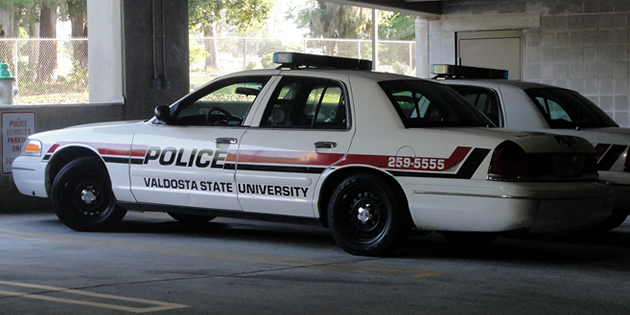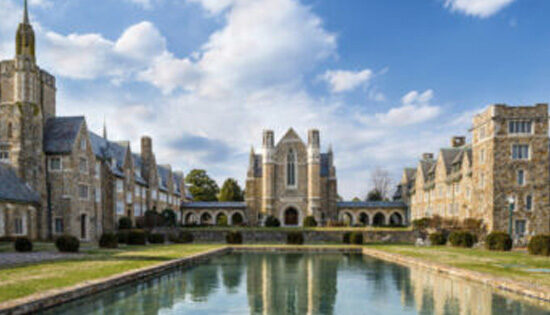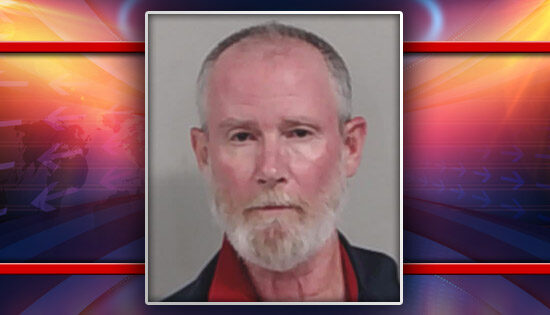Valdosta State University Has a Crime Problem—and No Solution
Nick Rudnik, Valdosta Today Opinion Contributor
Few would deny that police officers have a “tough beat.” Oftentimes the job description requires being put in harm’s way; injecting oneself into a dangerous, and perhaps life-threatening, situation on a regular basis. Even more, our peace officers are not paid nearly enough, they’re overworked, and their departments are understaffed and underfunded. Given these challenges, auditing any inadequacies in the discharge of an officer’s duties would have to include examining the roles played by administrative and legislative actors regarding both policy and funding.
On a systemic level, however, the focus should be on the administrators running these state and local policing agencies and how they manage crime prevention. The legislative function is played out once the resources are supplied; it’s up to the administrative end to allocate and prioritize.
This “tough beat” truth applies to campus police and is part of another truth found right here at VSU: Valdosta State University has a serious crime problem.
VSU’s picturesque, Spanish mission campus shares several borders with neighborhoods with environments conducive for breeding criminality and vice. And so, lawbreakers frequently find their way onto VSU’s campus. These predators find easy prey in VSU’s students—often naïve, middle class, suburban twentysomethings coming to and from the library, cafeteria, parking lots, and other campus locales.
In the past year alone there have been six email notifications sent to the VSU community detailing a campus robbery. March 3 saw the latest robbery; in this case, an armed robbery near VSU’s main pedestrian mall by an assailant wearing “a large rim hat, khaki pants, a plaid shirt, and riding a bicycle,” according to the VSU alert. In addition, there was a false report of yet another armed robbery on March 9. The individual in question has been charged with filing a false report.
In October 2013 we were shocked to learn of the on campus stabbing of VSU student Antoine Bray. Thankfully, Bray would later make a full recovery. And of course, who could possibly forget the November 2012 murder of VSU freshmen Jasmine Benjamin? Benjamin was strangled by her ex-boyfriend, Darien Meheux, in a university residence hall, and was later sentenced to life in prison.
These atrocities are the most powerful examples of a culture of lawlessness seeping into VSU’s campus—particularly when the sun recedes beyond the horizon.
And where has university officialdom been? In a phrase, conspicuously silent. Sure, VSU’s president, Bill McKinney, commissioned a public safety taskforce, which has, quite evidently, had little substantive impact on actually reducing campus crime.
The question then becomes: how do we reduce crime on an open, public campus bordered by these breeding grounds for mayhem? Admittedly, there’s no easy fix. What’s clear is that VSU’s campus has a security vacuum. And that security vacuum is evidenced by a noticeable lack of civil constabularies actively patrolling the campus—particularly at night.
VSU President McKinney should order VSU’s Public Safety Director Oswell Armour to deploy additional university system police (i.e., VSU police) and security officers now rather than waiting for yet another campus incident, such as an armed robbery. In short, they need to fill the security vacuum by a strong show of force. VSU police should be both conspicuous and vigilant. And they should be undeterred from approaching peculiar individuals who are acting suspiciously.
It is said that “politics abhors a vacuum”; meaning that when there is a failure of leadership, something or someone will rush to fill that void. Same with crime: where those with a criminal conscience detect the presence of a security vacuum, they will seize the opportunity and victims will proliferate.
At any time of the day, there should never be university officers sitting idle in a stationary location in their patrol cars; rather, they should be on foot, patrolling, walking a beat, and acting as an integral and welcoming element of the greater campus community. This is smart, community-based policing; this is how we work together to prevent crime.
A university is not a police state; nor should it be. However, it should never be a place where students, faculty, and staff feel unsafe, or fear for their lives or property. VSU has a police force for this reason. And we should use it to rein in criminality.
Considering all this, a legitimate question arises as to whether university functionaries charged with campus safety are simply ignorant to VSU’s crime problem or, perhaps, blatantly indifferent.
Thus far no serious solution has been publically proposed to combat the scourge of campus crime. We need both more “boots on the ground” and smarter, more inclusive policing. After much thought, prayer, and consideration, I have a simple recommendation for the VSU community working late into the night on our campus: bring a gun.
After all, it is now legal to store a concealed weapon in your vehicle parked on public university property in Georgia. If you have a concealed carry permit, pack your firearm in your car before leaving for campus. Of course, I haven’t always supported concealed carry on USG campuses, but save far-reaching reforms by VSU’s administration, I believe this to be the only practical method to prevent future crime.
So, if a lawbreaker tries to rob you on a given evening as you leave VSU’s library, or some other locale, while walking to your car at night, you’ll have some defense. Since VSU’s shown its unwillingness or incapacity to protect us, we must now protect ourselves.
It’s time to “lock and load.”
 Nicholas A. Rudnik is currently pursuing a degree in political science with a concentration in American politics at Valdosta State University. Previously, he’s served as a congressional page in the U.S. House of Representatives during the 111th Congress and in the Office of U.S. Congressman Sanford Bishop. Further, Nick has served on staff at an institutional interest group, the Association of American Law Schools, in Washington and has worked in the private sector. He has presented his research, focused primarily on congressional parties and elections, at regional academic conferences and hopes to pursue a graduate degree in political science. Nick is currently completing two manuscripts relating to southern congressional elections and judicial decision-making in the area of campaign finance; he can be contacted via e-mail at narudnik@valdosta.edu. Follow Nick on Twitter: @NickRudnik.
Nicholas A. Rudnik is currently pursuing a degree in political science with a concentration in American politics at Valdosta State University. Previously, he’s served as a congressional page in the U.S. House of Representatives during the 111th Congress and in the Office of U.S. Congressman Sanford Bishop. Further, Nick has served on staff at an institutional interest group, the Association of American Law Schools, in Washington and has worked in the private sector. He has presented his research, focused primarily on congressional parties and elections, at regional academic conferences and hopes to pursue a graduate degree in political science. Nick is currently completing two manuscripts relating to southern congressional elections and judicial decision-making in the area of campaign finance; he can be contacted via e-mail at narudnik@valdosta.edu. Follow Nick on Twitter: @NickRudnik.











